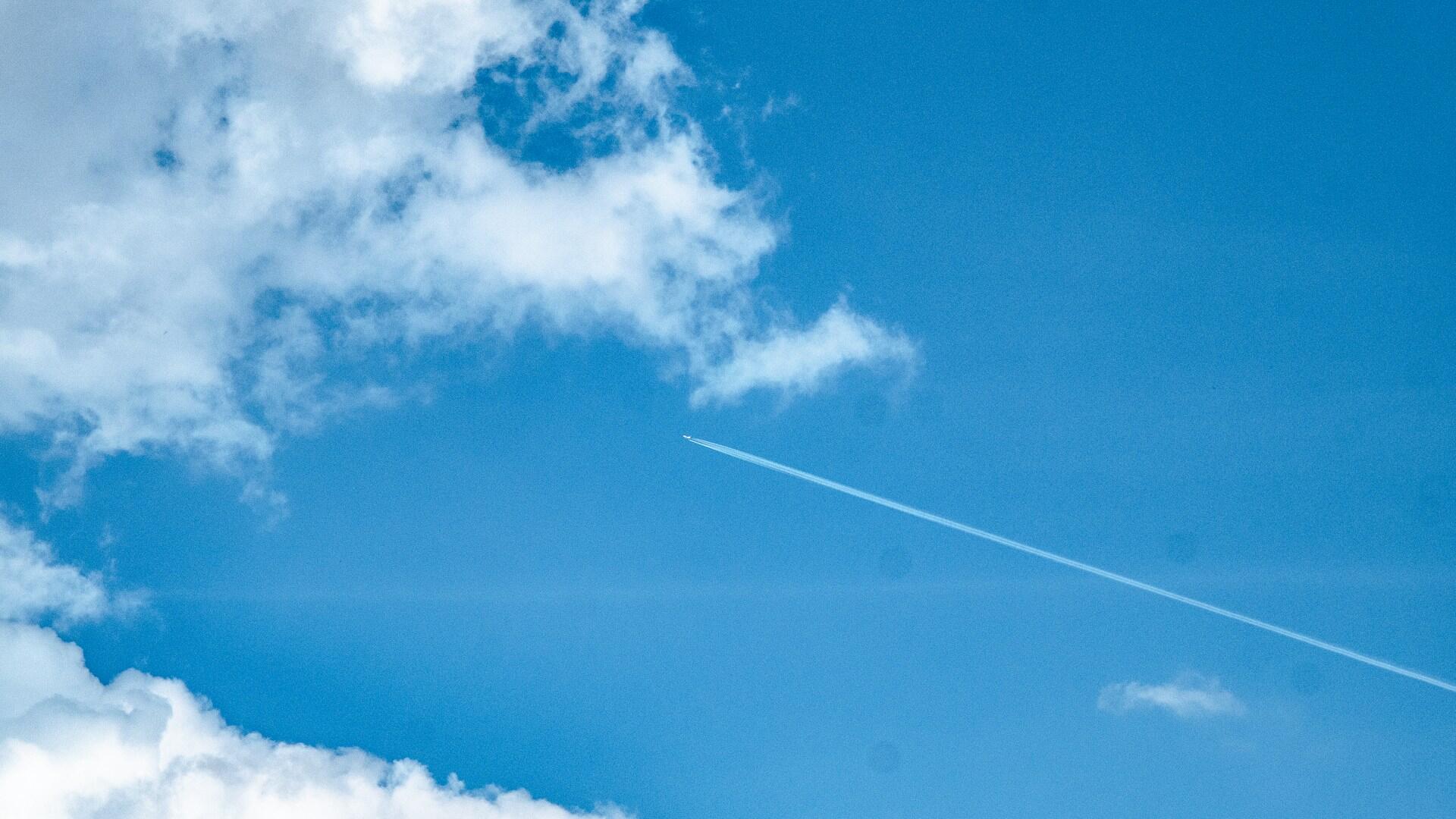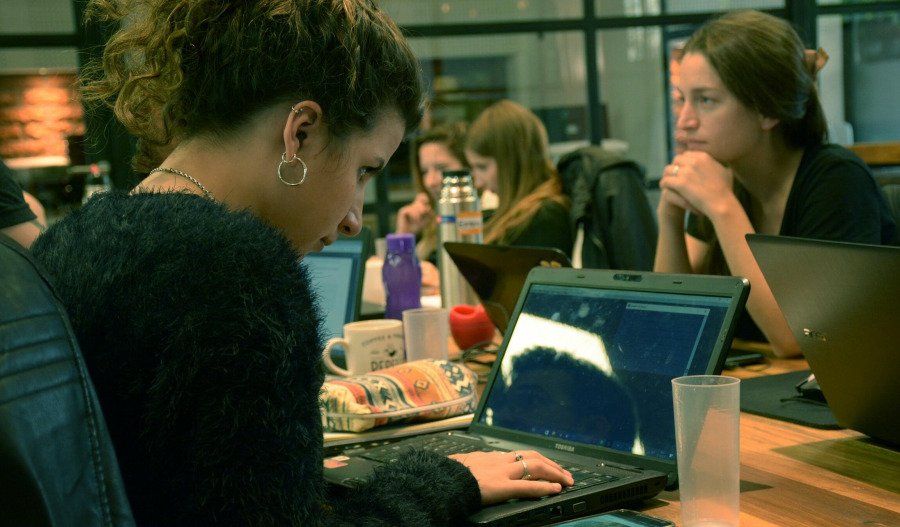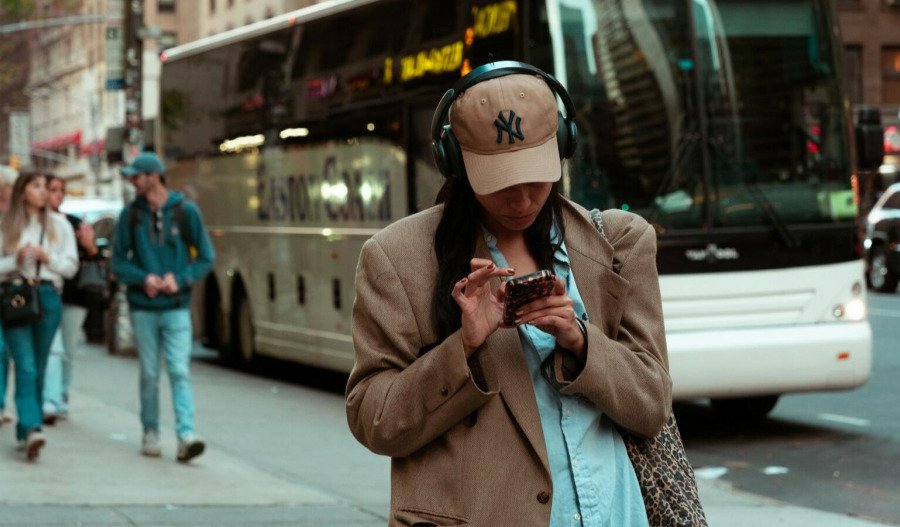It’s been a week of financial upheaval, technological leaps, and political drama, all woven together in a chaotic tapestry that the finance writers at Azzet.com will no doubt be untangling for weeks to come.
The world’s financial and technological gears have spun wildly, leaving investors, policymakers, and protesters alike wondering if they accidentally stepped into a simulation.
Two of the week's strongest stories surfaced on Friday: Israel's series of military strikes on Iran (a marked escalation, written up by finance journalist Oliver Gray) and the Air India plane crash that killed at least 241 people, miraculously leaving one sole survivor, and marking the most devastating plane crash in a decade. Reporter Chloe Jaenicke tracked this one.
Meanwhile, the United States tariffs continue to dominate the global economy, nudging inflation upward like an overeager personal trainer.
AMERICA'S IN A RIGHT STATE
The World Bank warned the tariffs imposed by U.S. President Donald Trump may slow economic growth.
This didn't seem to deter Trump, though, because finally there was some movement on the U.S.-China front, with both nations agreeing to an economic “framework”. We're just glad they didn't call it a deal. More details on how that looks here.
It's a shame for the U.S. that they are already well behind the eight ball when it comes to rare earths, as senior business writer Cameron Drummond explains in this week's edition of Mission Critical.
Meantime, Asia powerhouse India remains hopeful of its own trade deal with the U.S.
Surprisingly, U.S. inflation rose less than expected in May, with falling energy and vehicle prices offsetting rent increases. Gray covered that deveopment.
And in further good news for the Trump administration this week, General Motors blinked first and has now committed itself to spending US$4 billion on domestic plants. Plus, NVIDIA, the world’s leading AI chipmaker, has announced that it will no longer include China in its revenue forecasts.
However, over in Los Angeles, protests against immigration enforcement have escalated, prompting a curfew and a legal showdown between California officials and the Trump administration.
Puerto Rico is reportedly fixing to jump ship from the U.S. altogether.
Australia did not escape unscathed either, with the AUKUS security deal between Australia, the United States and the United Kingdom under review by the Pentagon. It's no wonder the European Union and Australia have begun discussions around a security deal.
Food for thought. And, if you are looking for a good place to eat in America, we hear Sunny's in Miami rates well.
Perhaps we should turn to artificial intelligence for some kind of logical and sensible way forward?

DEGENERATIVE AI
Nope. Turns out a fresh Apple report has found the latest AI technology is not so intelligent. Researchers discovered that the latest AI technology suffered from “fundamental limitations” that resulted in a “complete accuracy collapse”. Just great.
Anyway, OpenAI presses on, confirming its annualised revenue run rate has surged to over US$10 billion. But we're not sure if that is OpenAI's leaders saying that, or OpenAI itself.
AMD has revealed its open AI ecosystem vision, showcasing new hardware and software solutions for enhanced AI performance and efficiency.
Google, too, has revamped its training, betting big on AI-powered learning (and cutting staff in the process), while Meta Platforms (NASDAQ: META) is reportedly in advanced discussions to invest more than US$10 billion (A$15.4 billion) in San Francisco-based AI startup Scale AI. Meta has also announced a new AI world model designed to better understand the 3D environment and movements of physical objects. But that's a few too many A-I, A-I, Ohs for me.
So, let's buy the farm. Onwards we go. Like lemmings. And upwards.

SKIES DO HAVE THEIR LIMITS
Qantas Airways (ASX: QAN) announced its 49%-owned Singapore-based low-cost subsidiary Jetstar Asia Airways will close on 31 July. (Please keep the fares low!)
Senior business writer and financial reviewer Mark Story explained how given Virgin Australia’s latest IPO has been priced at 7x earnings (reflecting a $3.6 billion valuation) – at a 30% discount to Qantas – the brokers and fund managers Azzet spoke with were singing from the same hymn sheet: If you can get scrip at $2.90 fixed issue price - do it.
Meanwhile, Boeing's orders have risen to their highest level since late 2023. But Friday's Air India crash didn't help, with its stock taking an immediate hit.
On Thursday, Story followed embattled regional airline Rex and its bidder's plans to move to Canberra and relist on the ASX - but it does appear there is considerable turbulence ahead for this to happen.
Australia's newest gateway - Western Sydney International Airport (WSI) - is expanding its global reach, with Air New Zealand officially signing on to operate flights to Auckland. And according to the ABS, total arrivals to Australia reached 1,763,390 in April 2025, up 7.9% from a year earlier. Total departures rose 16.7% to 1,925,790.
And even higher up, senior business writer Garry West tracked the news around defence and space technology company Voyager Technologies, as it became valued at US$3.8 billion (A$5.8 billion), with its shares having more than doubled when they were listed on the New York Stock Exchange on Wednesday (Thursday AEST).
COMPANY BUSINESS
The CEO of Montgomery Investment Management, David Buckland told Story he sees significant upside for Life360 as the company evolves into a broader ecosystem offering services across family safety, pet tracking, item tracking, elderly care, and targeted advertising.
Monash IVF could not cut a break, so the CEO resigned.
Warner Bros. Discovery announced it would split into two publicly traded companies, while Disney has closed a deal with Comcast to take full control of Hulu after a lengthy two-year valuation.
Indeed, the mouse was definitely in the house this week, as Disney united with fellow Hollywood giant Universal to file a federal lawsuit against AI image generator Midjourney, accusing it of large-scale copyright infringement. Ratatouille may be on the menu.

HOME ECONOMICS
Australia's Prime Minister Anthony Albanese outlined his newly re-elected government's policies and plans in a speech to the National Press Club. Key on the agenda was a new productivity round table, to be led by Treasurer Jim Chalmers from August, with a focus on “further economic reform”.
Albanese is now off on his high-stakes diplomatic tour, starting with Fiji, followed by the United States, before heading to Canada for the G7 summit.
New property listings have fallen 9.7% nationwide, compared to the same time last year. Still, someone in Australia is $100 million richer. That's about 32.258 Leonardo DiCaprio motorhomes.
Meanwhile, Drummond handled this report with care: a “demographic time bomb”, - or so we are told - is ticking… as soaring life expectancies and falling fertility rates leave a shrinking workforce to support a burgeoning elderly population.
And Story brought us news of the Central Bank of Russia (CBR) - a founding member of the BRICS+ block - appearing willing to take monetary measures that Western counterparts would only frown at.
Superannuation experts are still debating whether retirees really need a million dollars to live comfortably, or if they can get by with a well-placed investment and a strong cup of tea.
In his latest edition of SUPER NATION, West explores why Payday Super support was not unanimous.
Also, in a manoeuvre that signals a clear “hands off” broadside to super funds, the share markets' regulator, ASIC, is trying to simplify IPO rules to attract privately owned companies to transition to the main board of ASX. Story has that report.
West adds that ASIC has also warned unlicensed social media personalities - finfluencers - to stop illegally promoting financial products or giving financial advice.
ASIC Chair Joe Longo said super played an important role in the economy, but ASIC saw a “great divide” between what could be reasonably expected of funds, and what was found in practice.
And the ACCC has no plans to stand in the way of German financial services firm Allianz’s plans to acquire the Royal Automobile Association of South Australia’s personal insurance business (RAAI).
STRAIT TALK
Across the Bass Strait, Tasmania finally got its split together and called an early election after a long pause. Reporter Frankie Reid has that development for you.

MURDER ON THE TRADING FLOOR
Story got amongst it, covering updates on Austin Engineering (ASX: ANG), Zip Co (ASX: ZIP), Fletcher Building (ASX: FBU), Johns Lyng Group (ASX: JLG), Austal (ASX: ASB), Monash IVF (ASX: MVF), Cochlear (ASX: COH), Cettire (ASX: CTT), Talaga Group (ASX: TLG), Syntara (ASX: SNT), Accent Group (ASX: AX1) and Dalrymple Bay Infrastructure (ASX: DBI). Read all about those companies here, here, here and here.
And if you want to know what tokenised real estate is, look at what is happening over in Dubai right now.
Four large tech firms released their earnings reports this week: Oracle, Gamestop, Adobe and Gitlab Inc. Plus, Chime Financial (NASDAQ: CHYM) shares surged 59% from their IPO price. And James Bay Minerals (ASX: JBY) was re-rated. Finally, shoe retailer Accent Group has flagged flat full-year earnings, as trading conditions remain challenging.
Women in media have been making headlines of their own — though not necessarily for the reasons they’d like. Career dissatisfaction among female journalists has hit a four-year high, with many calling for real action on pay equity rather than empty promises. Jaenicke has the details.
And just when you thought the week couldn’t get any more hand-holdy, ASUS and Xbox unveiled the ROG Xbox Ally handheld, a device that promises to bring console gaming to your fingertips — assuming, of course, you can afford it.
And finally…
THE MOVER AND SHAKER AWARD GOES TO...
… Greta Thunberg, who somehow managed to get herself deported from Israel after attempting to deliver aid to Gaza. The climate activist accused Israeli forces of “kidnapping” her in international waters, proving once again that she’s not afraid to take on global powers, whether they’re fossil fuel giants or national governments. She was sent packing in her least favourite mode of transport.




